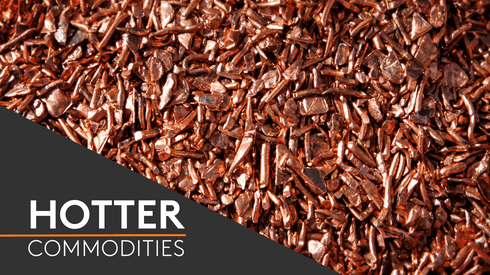(updated with section on Market View)
Indonesia’s mining ministry is proposing a regulation that may soften the mineral exports ban due to take effect on January 12, a senior government official told Metal Bulletin.
Exports of completely unprocessed ores would still be banned, “however the regulation will define limits on processing and quota limits”, R Sukhyar, director general of coal and minerals at the ministry, said on Wednesday January 8.
The export ban seeks to stop shipments of raw, unprocessed commodities to encourage domestic value addition, but there has been little clarity on what exactly constitutes “processing” for different types of commodities.
The proposed regulation will define minimum processing requirements for each mineral, potentially easing the way for miners to export some intermediate products and concentrates.
And the government is discussing the possibility for companies which process and smelt minerals to continue to export after January 12 if they have come up with plans for processing and refining.
They could be given export quotas related to smelting or refining capacity, or future downstreaming plans by companies.
But any export of processed minerals will be limited to the next three years, he added.
“No concentrate will be allowed after 2017, only refined metals and alloy allowed,” he said.
The proposed amendment from the mining ministry would need the approval of President Susilo Bambang Yudhoyono.
“We are waiting for government regulation prior to end of this week,” Sukhyar said.
Indonesia sees processed minerals increasing its foreign revenue from metals to $18 billion in 2016 and $25 billion in 2017, from $11.8 billion last year.
However, in the short-term the foreign revenue from metals will fall, he added.
Market view
“The government is trying to find a compromise in which the industry is given a three to four year period to build smelters but in the meantime you can still export with restricted volumes and conditions,” an Indonesian miner source who did not wish to be named, said.
“The argument now is that it’s an export control and not a total export ban,” he said.
Companies will have to submit detailed downstreaming plans, milestones and feasibility studies to the government after which it will probably give a quota to export, he added.
“One thing is clear, they won’t let you export as much as last year,” he said. Whether the new regulation will include higher taxes, is unknown as yet, he added.
“Earlier on they had tried to impose a quota system and this year, with the mining law coming into effect, they are going to reinstate the quota system,” he added.
The proposal, if approved, would allow mining companies such as Freeport-McMoRan Copper & Gold and Newmont Mining Corp to continue to export ship copper concentrates for three years.
“We continue to work cooperatively with the government to clarify the situation to ensure that both the company and the government will honor their commitments to all stakeholders and we can continue to operate at full capacity,” a spokesperson at Freeport said in an email to Metal Bulletin on Tuesday January 7.
“We intend to honor and abide by our contract of work which allows the company to export concentrates and to promote economically feasible downstream investments,” he added.
PT Newmont Nusa Tenggara (PTNNT), Indonesia’s second-biggest copper exporter, has said that it already adheres to the country’s mining law as it processes copper ore into concentrates.
“While our contract of work guarantees our right to export copper concentrate and even though PTNNT’s operation complies with the requirements of the Mining Law, we are prepared to take other reasonable steps to support the policy,” Martiono Hadianto, president director, said in a statement on December 10.
“While still somewhat vague, the inclination of Indonesian government officials to at least address copper producer concerns suggests that copper concentrate exports may not be affected to the same extent as nickel ore or bauxite exports,” Barclays analysts said in a note to their clients last month.
This case-by-case approach for each mineral has been advocated by many market participants.
Metal Bulletin previously reported that a last-minute presidential intervention or Supreme Court intervention could change the outcome of the Indonesian export ban on minerals.
Indonesia’s Mining Assn is petitioning the country’s highest court for more clarity on the legal wording of the mineral export ban.
The bauxite industry is making an argument that as there is no intermediate stage for bauxite and the next stage is refining to alumina their plans for downstreaming should be considered, so they can also get quotas to export bauxite in the meantime, the Indonesian mining source said.
Indonesia’s largest bauxite miner PT Antam has said it will follow government regulation and stop exporting minerals from January 12.
An Antam official told Metal Bulletin on Wednesday that the company is “still in discussions” with the government regarding the export of raw materials.
“We don’t know what will happen on Sunday,” he said, adding if Antam is not allowed to export ores its revenue will go down.
Shivani Singh
shivani.singh@metalbulletinasia.com
Twitter: @ShivaniSingh_MB




